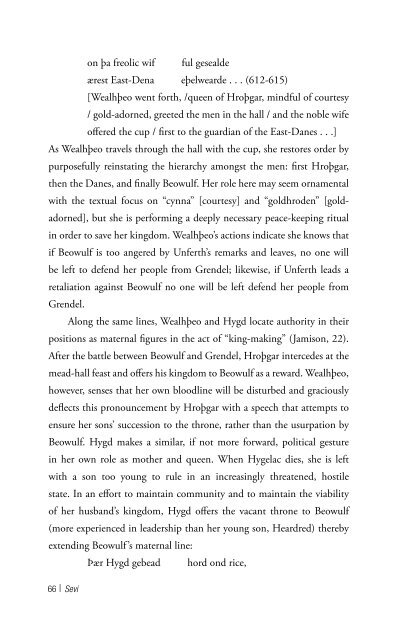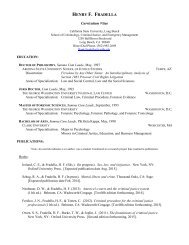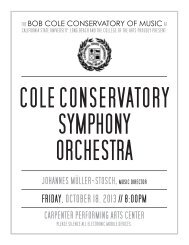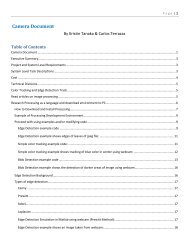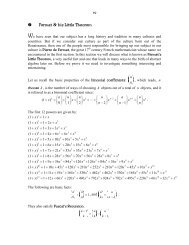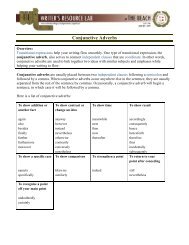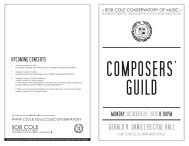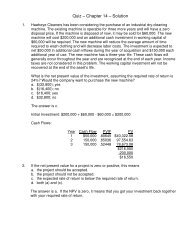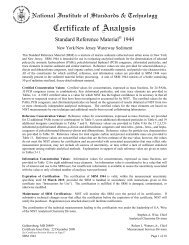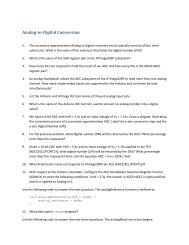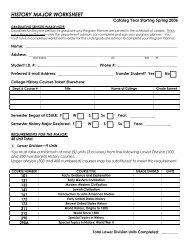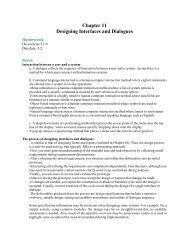Untitled - California State University, Long Beach
Untitled - California State University, Long Beach
Untitled - California State University, Long Beach
You also want an ePaper? Increase the reach of your titles
YUMPU automatically turns print PDFs into web optimized ePapers that Google loves.
on þa freolic wif ful gesealde<br />
ærest East-Dena eþelwearde . . . (612-615)<br />
[Wealhþeo went forth, /queen of Hroþgar, mindful of courtesy<br />
/ gold-adorned, greeted the men in the hall / and the noble wife<br />
offered the cup / first to the guardian of the East-Danes . . .]<br />
As Wealhþeo travels through the hall with the cup, she restores order by<br />
purposefully reinstating the hierarchy amongst the men: first Hroþgar,<br />
then the Danes, and finally Beowulf. Her role here may seem ornamental<br />
with the textual focus on “cynna” [courtesy] and “goldhroden” [goldadorned],<br />
but she is performing a deeply necessary peace-keeping ritual<br />
in order to save her kingdom. Wealhþeo’s actions indicate she knows that<br />
if Beowulf is too angered by Unferth’s remarks and leaves, no one will<br />
be left to defend her people from Grendel; likewise, if Unferth leads a<br />
retaliation against Beowulf no one will be left defend her people from<br />
Grendel.<br />
Along the same lines, Wealhþeo and Hygd locate authority in their<br />
positions as maternal figures in the act of “king-making” (Jamison, 22).<br />
After the battle between Beowulf and Grendel, Hroþgar intercedes at the<br />
mead-hall feast and offers his kingdom to Beowulf as a reward. Wealhþeo,<br />
however, senses that her own bloodline will be disturbed and graciously<br />
deflects this pronouncement by Hroþgar with a speech that attempts to<br />
ensure her sons’ succession to the throne, rather than the usurpation by<br />
Beowulf. Hygd makes a similar, if not more forward, political gesture<br />
in her own role as mother and queen. When Hygelac dies, she is left<br />
with a son too young to rule in an increasingly threatened, hostile<br />
state. In an effort to maintain community and to maintain the viability<br />
of her husband’s kingdom, Hygd offers the vacant throne to Beowulf<br />
(more experienced in leadership than her young son, Heardred) thereby<br />
extending Beowulf’s maternal line:<br />
Þær Hygd gebead hord ond rice,<br />
66 | Sevi<br />
beagas ond bregostol; bearne ne truwode<br />
þætne wið ælfylcum eþelstolas<br />
healdan cuðe, ða wæs Hygelac dead.<br />
no ðy ær feasceafte findan meahton<br />
æt ðam æðelinge ænige ðinga<br />
þæt he Heardrede hlaford wære,<br />
oððe þone cynedom ciosan wolde. (2369-2376)<br />
[There Hygd offered him (Beowulf) treasure and kingdom /<br />
rings and throne; Trusted not the son / to hold the ancestral<br />
thrones from foreign people / that Hygelac was dead. / Not<br />
sooner that the destitute may prevail / upon that hero (Beowulf)<br />
/ then he (said he) would not be in any way the lord of Heardred<br />
/ or wished to accept the royal power.]<br />
The fact that Hygd has power enough to determine the line of succession<br />
is an interesting subversion of typical patrilineal structure and hints at<br />
the remnants of the matrilineal culture remaining amongst the Geat tribe<br />
during this time period. More alarming, though, is that Beowulf refuses<br />
the throne offered to him by Hygd. I feel this decision is a reflection<br />
of Beowulf’s continual rejection of his own matrilineal line. A look at<br />
Beowulf’s family tree indicates that Hygd is his maternal aunt-in-law,<br />
married to King Hreðel’s son, Hygelac. Hygelac is Beowulf’s mother’s<br />
brother (thus forming the crucial avunculate relationship between the<br />
two) and King Hreðel is his grandfather, thereby easily securing his place<br />
in the succession to the Geatish throne. Though in a more patrilineal<br />
society, Beowulf should feel more of a kinship with his father Ecgþoew’s<br />
own line, the text indicates that Beowulf was brought up, and brought up<br />
well, by his mother’s family, not by his paternal relatives:<br />
Ic wæs syfanwintre þa me sin(c)a baldor,<br />
freawine folca æt minum fæder genam;<br />
heold mec ond hæfde Hreðel cyning.<br />
Sevi | 67


